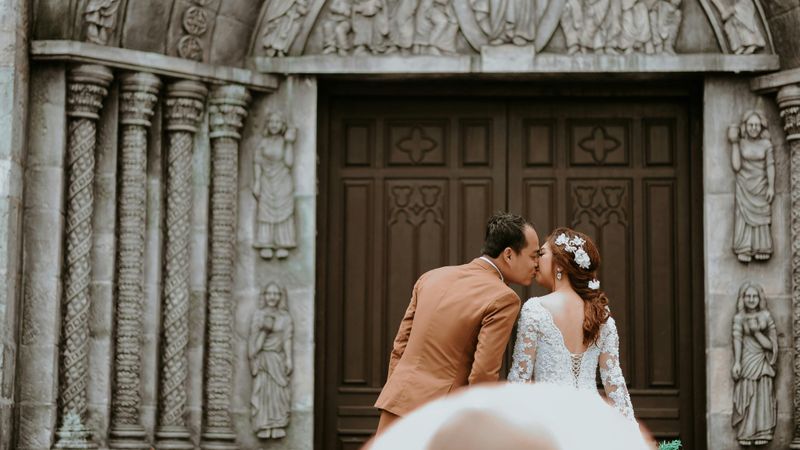10 Reasons Millennials Are Rethinking Marriage

Marriage, once considered a cornerstone of adult life, is being reevaluated by Millennials. This generation is navigating a complex landscape of economic challenges, shifting societal norms, and personal aspirations, leading them to question traditional paths. From financial constraints to evolving views on commitment, these ten reasons delve into why Millennials are rethinking marriage.
1. Financial Pressures

For many Millennials, the dream of a fairytale wedding clashes with the harsh reality of financial constraints. Student loan debt looms large, making the cost of a wedding seem extravagant. The housing market adds another layer of difficulty, where saving for a down payment often takes precedence over wedding plans. Economic uncertainty further complicates the decision. Many feel that the financial responsibilities of marriage are out of reach. This leads to a postponement of marriage, as financial stability becomes a priority. The desire for a secure financial foundation shapes their approach to love and commitment.
2. Changing Career Priorities

Career ambitions often take precedence for Millennials, reshaping how they view marriage. This generation values entrepreneurship, flexibility, and the pursuit of passion projects. With the pressure to build financial security, marriage may seem like an additional demand. Some Millennials delay marriage to focus on career growth, believing it essential for personal fulfillment. The balance between work and love is a delicate dance. As they navigate professional paths, marriage sometimes takes a back seat, with the belief that true partnership doesn’t always require a legal bond.
3. High Divorce Rates Among Parents

Growing up amid rising divorce rates, Millennials witnessed the fallout of failed marriages first-hand. For some, this experience fosters skepticism about the institution of marriage itself. They question whether marriage truly guarantees lifelong happiness. The memories of parental divorce shape their perceptions, often leading to a more cautious approach. With these experiences, Millennials may choose stability over traditional commitments. They seek lasting relationships but are wary of legal ties, viewing them as unnecessary for happiness. The desire for emotional security can outweigh the need for a formal union.
4. Delayed Life Milestones

Millennials are redefining life milestones, taking paths less traveled than previous generations. Buying homes, having children, or settling into long-term relationships often occur later in life. The urgency to marry diminishes as they prioritize personal growth and exploration. Adventure and self-discovery are central to their journeys, with marriage not always fitting into the timeline. The freedom to explore life on their own terms becomes paramount. For many, this delay in traditional commitments allows for a richer, more fulfilling experience, where marriage is just one of many options.
5. Student Loan Debt & Economic Instability

Economically burdened, many Millennials carry the weight of student loan debt, influencing their views on marriage. The financial entanglements of a legal union can feel daunting. Debt creates a sense of instability, making long-term commitments risky. Marriage may be seen as an unnecessary complication when financial security is not assured. The focus often shifts to debt repayment and career stability. The fear of financial burden overshadows romantic decisions, with many opting to strengthen their financial positions before considering marriage. For some, love exists independently of legal ties.
6. Rise of Cohabitation

Cohabitation, once frowned upon, is now a norm among Millennials. Living together offers the benefits of companionship and stability without the formalities of marriage. Many in this generation view cohabitation as a practical step, allowing them to test compatibility before committing legally. The paperwork of marriage feels superfluous when love and loyalty are already present. This trend reflects a shift in societal norms, where the traditional sequence of relationships is redefined. Cohabitation provides a middle ground, offering freedom and partnership without the legal constraints of marriage.
7. Evolving Views on Commitment

For Millennials, commitment transcends the legal bindings of marriage. Love and loyalty are valued independently of societal expectations. This generation often views a legal contract as unnecessary for validating relationships. The focus is on emotional connection rather than legal formalities. Millennials are crafting their own narratives, where personal vows hold more weight than conventional ceremonies. They embrace diverse relationship models, prioritizing authenticity and mutual respect. In this reimagined landscape, commitment is defined by individual values and shared experiences, rather than by tradition.
8. Shifting Gender Roles

Shifting gender roles invite Millennials to question traditional marital expectations. With an emphasis on equality and independence, many are rethinking the purpose of marriage. Traditional roles can feel outdated and restrictive. Millennials are crafting partnerships that reflect modern values, where both partners share responsibilities equally. The appeal of marriage diminishes when it is associated with old-fashioned roles. Instead, this generation seeks relationships that embody mutual respect and autonomy. In redefining roles, Millennials find empowerment, crafting unions that align with their progressive ideals.
9. Focus on Personal Freedom

Millennials cherish personal freedom, often prioritizing self-discovery over traditional commitments like marriage. Travel, exploration, and personal growth are central to their identities. For many, marriage is perceived as restrictive, potentially hindering their quest for independence. This generation embraces a lifestyle that values fluidity and change, where personal development is paramount. The decision to marry may be postponed or bypassed entirely, as they focus on individual journeys. In this pursuit, relationships are celebrated but not confined by legal definitions, allowing for a more flexible approach to love.
10. Less Religious Influence

Once heavily influenced by religious or cultural norms, marriage now has less sway over Millennials. Many identify as less religious, with spirituality taking a personal form rather than following prescribed doctrines. This shift reduces the pressure to marry for religious reasons. Without the weight of tradition dictating their choices, Millennials are free to redefine relationships according to personal values. The absence of religious obligation allows them to explore partnerships on their own terms. In this secular landscape, marriage is an option, not a necessity, reflecting a broader cultural evolution.

Comments
Loading…